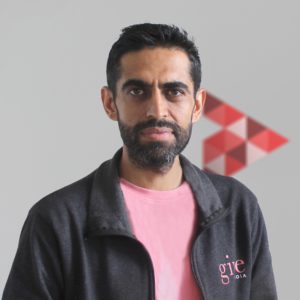TODAY, as proud Indians, we will all be marking the birth of an incredible nation, celebrating our hard-earned independence from foreign rule 74 years ago. At the outset, our forefathers envisioned a country that would give every citizen the right to enjoy this heady taste of freedom from subjugation and oppression. But are we? As in are we all?
Oppression comes in many forms in a state so diverse in its culture and customs as India, but a common thread through most kinds of oppression is poverty. And sadly, progress made by the government through various poverty alleviation programmes post Independence, has taken a real beating during the pandemic. Covid-19 has set the country’s economy back by at least 20 years, experts say, leaving almost half of India’s population poor and one-fifth living below the poverty line.
How long can we wait?
At Give, this makes us more determined to work towards our vision of alleviating poverty and finding new, innovative, better, and quicker ways of getting to that goal. As the underlying reason for so many other ills that plague our nation – homelessness, food insecurity, malnutrition, illiteracy, inadequate healthcare – poverty reduction will also help decrease the burden of all these other inherent problems.

A child born to a destitute, undernourished, illiterate mother, for instance, faces a bleak life trajectory of ill health, poor education and financial insecurity – a destiny determined by abject poverty. A 2020 report by the World Economic Forum says that Indians born into poor families will take seven generations to reach the country’s mean income. Can we afford to wait that long?
Underlying reason for other ills
It is no coincidence that the number of poor people in India is equal to the number of illiterate – while 270 million people live below the poverty line, around 272 million are uneducated. Girls are disproportionately affected by destitution as impoverished families choose to spend their meagre resources to educate their sons and pass on the financial burden of daughters to her in-laws by marrying them off early. Yes, there are other factors that lead to gender discrimination, but link to poverty is irrefutable.

Even before the coronavirus pandemic, India had the largest population of people facing food insecurity in the world, with 189 million undernourished citizens. Now new data from the National Family Health Survey (NFHS) 2019-20 suggests that India’s child malnutrition – which has irreversible long-term consequences on public health – is deepening as more families fall into poverty.
Healthcare too is a double-edged sword for low-income families. While poor access to medical facilities means that illness, infection and disease is neglected till it becomes an emergency, a study shows that out-of-pocket expenses on healthcare pushed 55 million into poverty. A 2015 Government of India report states that “incidence of catastrophic expenditure because of health care costs is growing and is now being estimated to be one of the major contributors to poverty.”
As a human right
Just as education, food security, shelter and access to healthcare are human rights, freedom from poverty – the right to live in dignity, free from want – can be viewed as one too as it is essential for the realisation of all other human rights. It is impossible to feed your family, put a roof over their heads, provide them adequate healthcare and educate your children if you haven’t got the means.
While we celebrate the “freedom at midnight” achieved by our founding fathers on August 15, 1947, let us vow to include the millions for whom this freedom still has no meaning.
We are a country rich in resources and human capital. If we all put our minds to it, commit ourselves to find solutions to free our citizens from the chains of poverty, surely we won’t need seven generations to achieve it.
Established in 2000, Give is the largest and most trusted giving platform in India. Our community of 2.6M+ donors have supported 2,800+ nonprofits, impacting 15M+ lives across India.

Atul is Founder 2.0 and CEO of Give. He believes that every human being can live a dignified life out of poverty, and it’s well within our collective means to achieve that goal during our lifetime.
Discover more from
Subscribe to get the latest posts sent to your email.
